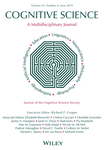We investigate the processing of wh questions in Niuean, a VSO ergative–absolutive Polynesian language. We use visual‐world eye tracking to examine how preference for subject or object dependencies is affected (a) by case marking of the subject (ergative vs. absolutive) and object (absolutive vs. oblique), and (b) by the transitivity of the verb (whether the object is obligatory). We find that Niuean exhibits (a) an effect of case, whereby dependencies of arguments with absolutive case (whether subjects or objects) are preferred over dependencies of arguments with ergative or oblique case, and (b) an effect of transitivity, whereby dependencies of obligatory objects (i.e., of transitive verbs) are preferred over dependencies of optional objects (i.e., of intransitive verbs). These results constitute evidence against theories that appeal to a universal subject advantage, or to the linear distance between filler and gap. Instead, the effect of case is consistent with a frequency‐based account: Because absolutive case has a wider syntactic distribution than ergative or oblique, absolutive dependencies are easier to process. The effect of transitivity reflects sensitivity of the parser to whether or not an argument is obligatory. We propose that these two strategies could be unified if the parser prefers dependencies with arguments that are more likely to materialize.
Publication Type
- Article



